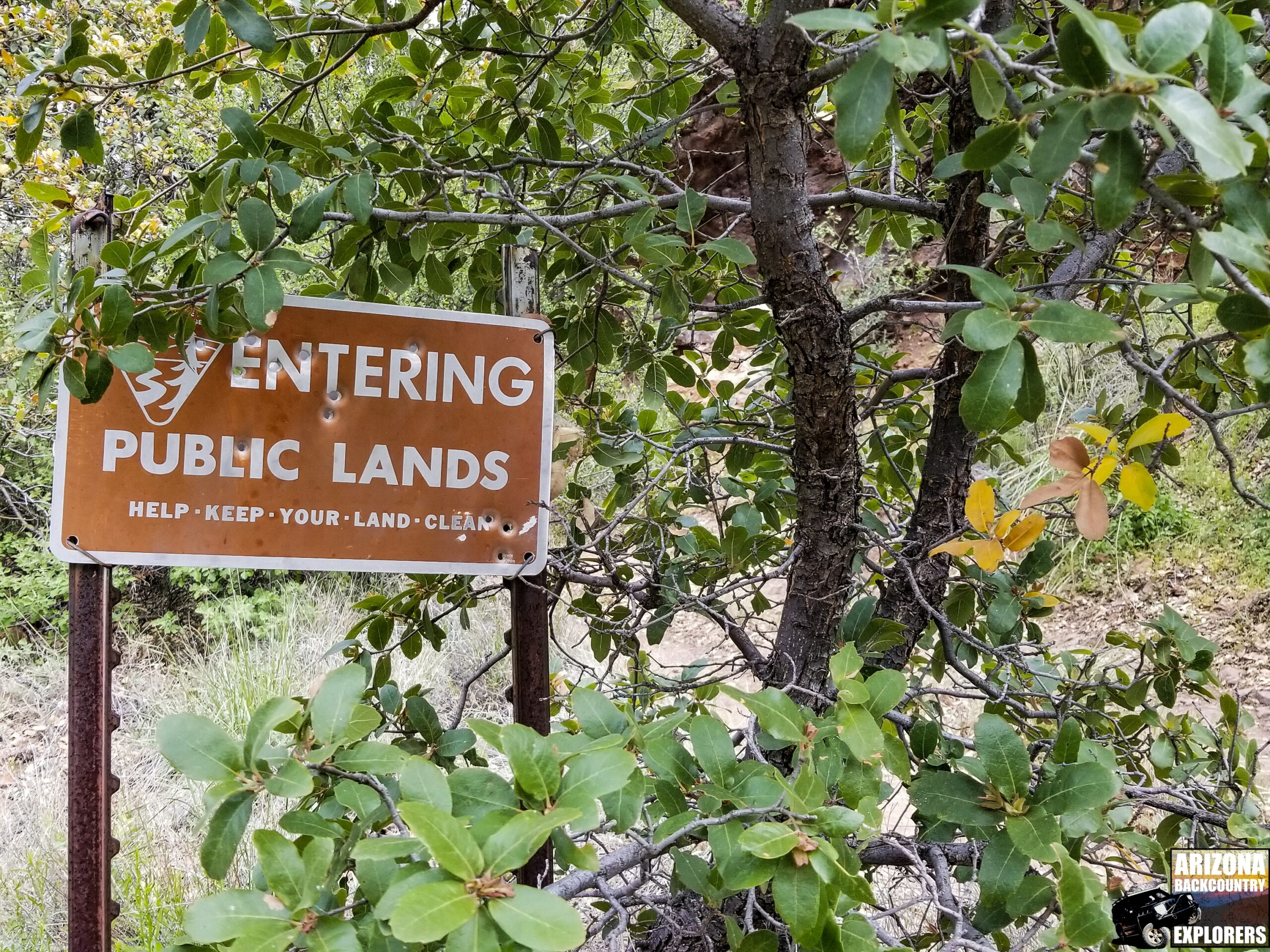Your cart is currently empty!
Posted in
Proposed SEC Rule Could Hurt Every U.S. Farmer and Rancher
Northern Ag Net
More than 100 agriculture interest groups say farmers and ranchers could have to report personal and business-related information to the Securities Exchange Commission if a rule to require publicly traded businesses to report climate efforts is finalized.
In a letter sent to the agency on Tuesday, the groups asked the SEC for a 180-day extension to submit public comments on the rule.
The “Enhancement and Standardization of Climate Related Disclosures for Investors” proposed rule has been touted by the SEC as a way to protect investors in publicly traded companies. It would require those companies to report data about their entire supply chain.
The American Farm Bureau Federation said in a news release, “Nearly every farmer’s and rancher’s products eventually touch a publicly traded company, meaning that farmers and ranchers could be forced to report personal information and business-related data. This unprecedented overreach could create onerous reporting requirements for even small farms and ranches with few or no employees.”
“This appears to be an example of overreach by the Securities and Exchange Commission,” said AFBF President Zippy Duvall. “Farmers and ranchers are already heavily regulated by multiple agencies at the local, state and the federal level. New SEC reporting requirements will no doubt make an already complicated patchwork of regulations even more cumbersome.
“Farmers and ranchers are focused on growing the food, fuel and fiber this country needs, and have never been subjected to SEC regulations. Unlike the large corporations currently regulated by the SEC, family farms and ranches don’t have teams of compliance officers. We urge the SEC to extend the comment period to allow those in agriculture time to understand the full impact of this proposal and offer meaningful input.”
The proposed rule is 510 pages long with 1,068 technical footnotes and almost 750 direct questions, but the SEC has only allowed 39 days for review.
The proposed rule “may create multiple, new sources of substantial costs and liabilities,” the letter states. “These include almost certain reporting obligations, technical challenges, significant financial and operational disruption and the risk of financially crippling legal liabilities. In doing so, the rule would have meaningful consequences for our members’ ability to produce this country’s food, fuel and fiber as well as for the security and stability of U.S. agricultural supply chains.”
“Further justification for this extension is the fact that the proposed rule’s expansive treatment of the reporting of ‘Scope 3′ greenhouse gas emissions not only directly affects our members’ operations, but in doing so may create multiple, new sources of substantial costs and liabilities,” the letter said.
The SEC proposal would require businesses to show how they identify and manage climate risks and how the risks affect companies.
Companies would then be required to report how their meeting climate pledges.
The proposal breaks emissions into three categories. Companies with more than $75 million in revenues would have to report so-called Scope 1 and 2 emissions directly from their operations. Scope 3 would cover emissions from customers and supply chain.
Full letter below
Vanessa A. Countryman
Secretary
Securities and Exchange Commission
100 F Street, NE
Washington, D.C. 20549-1090
rule-comments@sec.gov
April 26, 2022
File Number: S7-10-22
RIN 3235–AM87
Re: Request for Extension to the Comment Period for Proposed Rule on The Enhancement and Standardization of Climate Related Disclosures for Investors,
(87 FR 21334)
The undersigned organizations, representing the overwhelming vast majority of agriculture, livestock and poultry farmers and ranchers across the United States, respectfully request a 180-day extension, from May 20, 2022 until November 16, 2022 to the comment period for the Securities and Exchange Commission’s (SEC) Proposed Rule on The Enhancement and Standardization of Climate Related Disclosures for Investors. Our members grow plentiful and affordable meat, eggs, milk, fruits and vegetables, grain and fibers, as well as produce the fertilizers and crop protectants
necessary to feed, fuel and clothe America and large portions of the world population. Members grow virtually every agricultural commodity produced commercially in the United States, including much of the U.S. wheat, corn, rice, soybean, cotton, wool, sugar, milk, poultry, egg, pork, lamb, and beef supply. Agriculture and livestock-related industries contributed over $1 trillion to the U.S gross domestic product in 2020 and employed 20 million people.
Our members, who are entities ranging from small family farms to the largest multinational corporations, are nevertheless overwhelmingly not “registrants” or otherwise subject in any way to the jurisdiction and oversight of the SEC. The proposed rule changes this. We must be granted more time to read, absorb, analyze and then draft meaningful comments. More time would be warranted simply on the basis of the voluminous nature of the proposed rule; 510 pages in length1 with 1068 technical footnotes and nearly 750 direct questions, all of which must be read, digested and considered for possible comment. We require the additional time in order to fully review the SEC’s proposal, retain legal and technical expertise, and understand the myriad ways it might impact our members.
Further justification for this extension is the fact that the proposed rule’s expansive treatment of the reporting of “Scope 3” greenhouse gas emissions not only directly effects our members’ operations, but in doing so may create multiple, new sources of substantial costs and liabilities. These include almost certain reporting obligations, technical challenges, significant financial and operational disruption and the risk of financially crippling legal liabilities. In doing so, the rule would have meaningful consequences for our members’ ability to produce this country’s food, fuel and fiber as well as for the security and stability of US agricultural supply chains.
The SEC has provided only a mere 39 days to review, comprehend and attempt to produce meaningful comments. This is wholly inadequate given the above considerations.
We further note that this comment period is in direct violation of President Obama’s January 21, 2009 Memorandum on Transparent and Open Government (Memo). That Memo stated three main directives for agencies to follow the pursuit of a more open government:
• Government should be transparent
• Government should be participatory.
• Government should be collaborative.
President Obama’s policy on open government and enhanced opportunity for meaningful participation in the regulatory process was, of course, not new but part of a long-established policy across Administrations to make the regulatory process more meaningful and engage stakeholders more directly. In signing Executive Order 12866, Regulatory Planning and Review (September 30, 1993), President Clinton made clear through Section 6(a)(1) that:
Each agency shall (consistent with its own rules, regulations, or procedures) provide the public with meaningful participation in the regulatory process. In particular, before issuing a notice of proposed rulemaking, each agency should, where appropriate, seek the involvement of those who are intended to benefit from and those expected to be burdened by any regulation (including, specifically, State, local, and tribal officials). In addition, each agency should afford the public a meaningful opportunity to comment on any proposed regulation, which in most cases should include a comment period of not less than 60 days. Each agency also is directed to explore and where, appropriate, use consensual mechanism for developing regulations, including negotiated rulemaking. (emphasis added) On January 19, 2011, President Obama signed Executive Order 13563, Improving Regulation and Regulatory Review. It supplements the requirements of E.O. 12866, and further provides in Section 2(a) that:
(a) Regulations shall be adopted through a process that involves public participation. To that end, regulations shall be based, to the extent feasible and consistent with law, on the open exchange of information and perspectives among State, local, and tribal officials, experts in relevant disciplines, affected stakeholders in the private sector, and the public as a whole. Furthermore, Section 2(b) directly addresses the necessity of allowing stakeholders to comment on the entire of a proposal’s docket. To the extent feasible and permitted by law, each agency shall also provide, for both proposed and final rules, timely online access to the rulemaking docket on regulations.gov, including relevant scientific and technical findings, in an open format that can be easily searched and downloaded. For proposed rules, such access shall include, to the extent feasible and permitted by law, an opportunity for public comment on all pertinent parts of the rulemaking docket,
including relevant scientific and technical findings.
The SEC’s proposed rule, and in particular its expansive Scope 3 requirements is both incredibly complex and represents a wholly new potential reporting and liability risk for stakeholders in a context, before an agency, and under a variety of federal laws and regulations that they have never had to worry about. Inadequate time for developing comments undermines stakeholders’ due process rights and is counter to both the requirement of the Administrative Procedures Act and the vast body of executive orders that guide major federal rulemakings. Absent an extensive expansion of the current comment period, the nation’s broad and robust agricultural sector, indeed the entire food supply chain, will have effectively been denied any meaningful opportunity to participate in the SEC’s proposed rulemaking. Accordingly, we respectfully request a 180 day extension, from May 20, 2022 until November 16, 2022 for filing of comments.
Thank you for your attention to this matter. If you have any further questions, please contact Michael Formica at the National Pork Producers Council at 202-347-3600 or by email at formicam@nppc.org
Sincerely,
Agricultural Retailers Association
Alabama Cattlemen’s Association
Alabama Farmers Federation
American Farm Bureau Federation
American Feed Industry Association
American Seed Trade Association
American Soybean Association
American Sugar Alliance
Arizona Cattle Feeders’ Association
Arizona Farm Bureau Federation
Arkansas Cattlemen’s Association
Arkansas Farm Bureau Federation
Arkansas Pork Producers Association
Arkansas Soybean Association
Association of Equipment
Manufacturers
California Farm Bureau
California Pork Producers Association
Center for Dairy Excellence
Colorado Cattlemen’s Association
Colorado Farm Bureau
Colorado Pork Producers Council
CropLife America
Delaware Farm Bureau
Florida Cattlemen’s Association
Georgia Farm Bureau
Georgia Pork Producers Association
Hawaii Cattlemen’s Association
Idaho Farm Bureau Federation
Illinois Farm Bureau
Illinois Pork Producers Association
Indiana Farm Bureau
Indiana Pork Producers Association
Iowa Farm Bureau
Iowa Pork Producers Association
Iowa Soybean Association
Kansas Farm Bureau
Kansas Livestock Association
Kansas Pork Association
Kansas Soybean Association
Kentucky Farm Bureau Federation
Kentucky Pork Producers Association
Kentucky Soybean Association
Louisiana Cattlemen’s Association
Louisiana Farm Bureau Federation
Michigan Farm Bureau
Michigan Pork Producers Association
Michigan Soybean Association
Mid-Atlantic Soybean Association
Minnesota Pork Producers Association
Minnesota Soybean Association
Mississippi Farm Bureau Federation
Mississippi Pork Producers Association
Mississippi Soybean Association
Missouri Cattlemen’s Association
Missouri Farm Bureau
Missouri Pork Association
Montana Farm Bureau
Montana Pork Producers Council
Montana Stockgrowers Association
National Cattlemen’s Beef Association
National Cotton Council
National Corn Growers Association
National Council of Farmer
Cooperatives
National Milk Producers Federation
National Pork Producers Council
National Potato Council
National Turkey Federation
Nebraska Cattlemen
Nebraska Farm Bureau
Nebraska Pork Producers Association
Nebraska Soybean Association
Nevada Farm Bureau
New Jersey Farm Bureau
New Mexico Farm & Livestock Bureau
New York Farm Bureau
New York Pork Producers
North American Meat Institute
North American Millers’ Association
North Carolina Cattlemen’s Association
North Carolina Farm Bureau
North Carolina Pork Council
North Dakota Farm Bureau
North Dakota Pork Council
Northeast Farmers Dairy Cooperatives
Ohio Agri-Business Association
Ohio Cattlemen’s Association
Ohio Farm Bureau
Ohio Pork Council
Oklahoma Cattlemen’s Association
Oklahoma Farm Bureau
Oregon Cattlemen’s Association
Oregon Dairy Farmers Association
Oregon Pork Producers
Pennsylvania Farm Bureau
Professional Dairy Managers of
Pennsylvania
South Carolina Farm Bureau
South Dakota Farm Bureau
South Dakota Pork Producers Council
Tennessee Farm Bureau Federation
Tennessee Pork Producers Association
Texas Association of Dairymen
Texas Cattle Feeders’ Association
Texas Pork Producers Association
The National Grange
United Egg Producers
US Poultry and Egg Association
USA Rice
Utah Farm Bureau
Utah Pork Producers
Virginia Cattlemen’s Association
Virginia Farm Bureau
Washington Farm Bureau
Washington State Dairy Federation
West Virginia Cattlemen’s Association
West Virginia Farm Bureau
Wisconsin Cattlemen’s Association
Wisconsin Pork Association
Wisconsin Soybean Association
Wyoming Farm Bureau
Wyoming Stock Growers Association
The letter is also available HERE
Subscribe to RANGE magazine
Call 1-800-RANGE-4-U
The post Ag groups seek extension on comments period for SEC’s nightmarish “Climate Disclosure” rule appeared first on RANGEfire!.
Tags:
You may also like…

Visit the AZBackroads.com Store

Please Become A Member
We need your help to keep our backroads open. Please join today!






